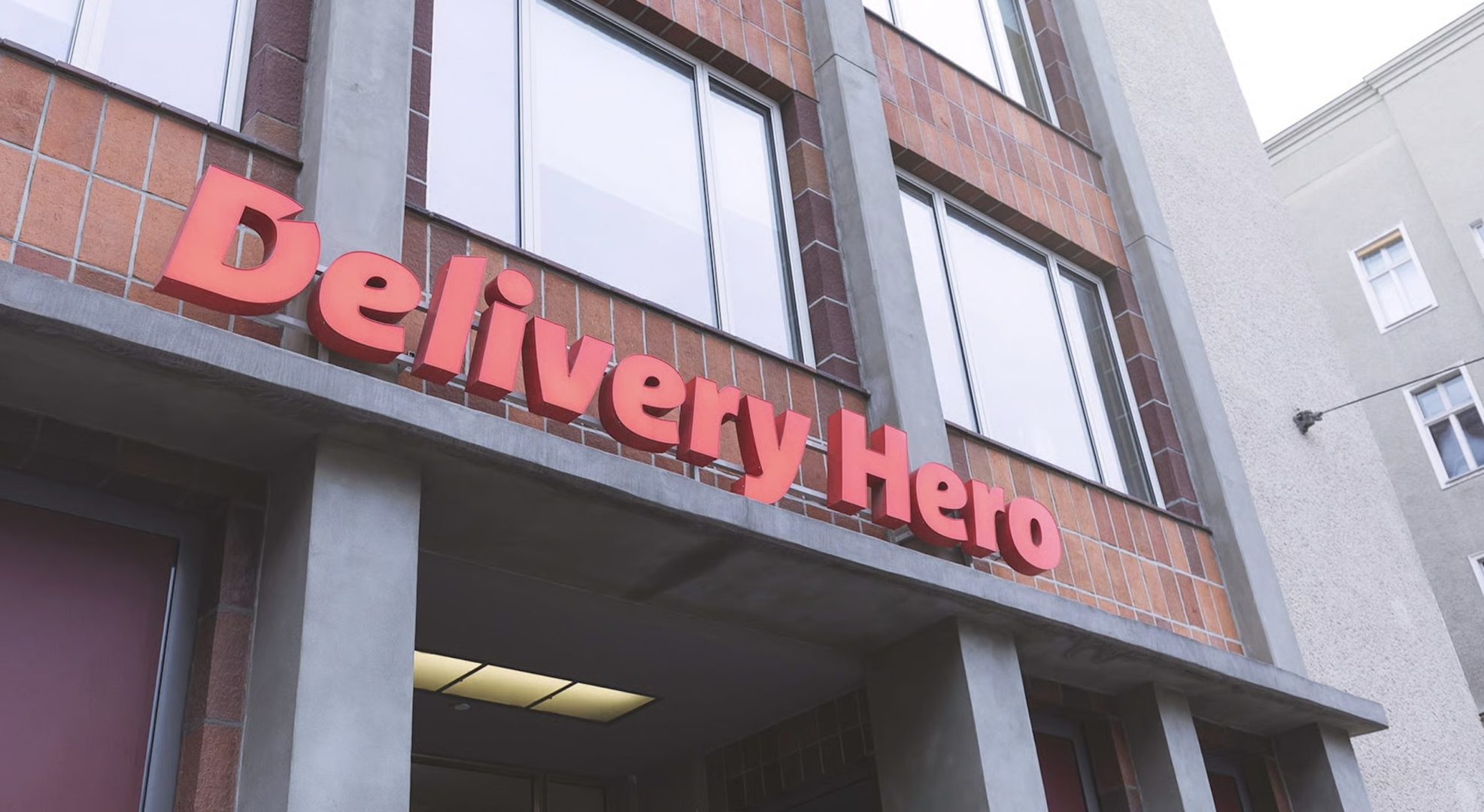From Negligence to Malice: How the Raine Amendment Re-wires Liability, Damages, and Defense Strategy for…

Delivery Hero's long brand name logo (Image: Delivery Hero)
EU’s Landmark Antitrust Ruling Against Delivery Hero & Glovo: A New Era for Competition Law
EU’s Landmark Antitrust Ruling Against Delivery Hero & Glovo: A New Era for Competition Law
June 4, 2025 9:18 am
Implications, Industry Impact, and Strategic Outlook for the Digital Economy
Introduction
In a landmark decision that is already reshaping the competitive framework of the digital economy, the European Commission has imposed a total fine of €329 million on Berlin-based Delivery Hero and its Spanish subsidiary Glovo. This historic ruling not only penalizes the companies for their coordinated anti-competitive practices but also marks the first instance where the Commission has sanctioned a non-solicitation agreement—a practice that restricted the mobility of talent across competing firms. In an era of rapid digital transformation and market consolidation, this decision reverberates far beyond the food delivery sector, calling for a closer examination of antitrust principles in modern business strategies. [i] [ii] [iii]
Background of the Case
Between 2018 and 2022, Delivery Hero, which initially acquired a minority stake in Glovo before attaining full control in July 2022, leveraged this investment to influence Glovo’s operational decisions and competitive positioning. The investigation revealed three core areas of concern:
- Exchange of Confidential Information: The companies shared sensitive commercial data—including pricing strategies, cost structures, and market plans—which allowed them to synchronize their business tactics without the pressures of effective competition.
- Non-Solicitation Agreement: By agreeing not to recruit each other’s employees (originally starting with managerial positions and later extending to most staff, with the notable exception of self-employed couriers), they stifled the dynamic labor market, ultimately reducing the incentive for companies to compete for talent.
- Geographical Market Allocation: The two firms effectively divided European national markets among themselves, ensuring that each maintained a secure position without the risk of overlapping competition.
These practices, enabled by the anti-competitive use of a minority shareholding, undercut consumer choice and innovation in a market that thrives on agility and technological progress. [i] [ii] [iii]
Detailed Analysis of the Ruling
Minority Shareholdings as a Facilitator of Collusion
Ordinarily, minority investments are a routine aspect of corporate finance and strategy. However, in this case, Delivery Hero’s share in Glovo became a strategic lever—allowing the sharing of commercially sensitive information that would typically be guarded in competitive markets. This misuse not only facilitated coordinated market entry and pricing strategies but also obscured the natural competitive forces that drive innovation and consumer welfare.
The Legal Significance of No-Poach Agreements
Historically, non-solicitation or no-poach agreements have been viewed as internal corporate arrangements. The Commission’s groundbreaking ruling that such an agreement constitutes a cartel when it restricts employees’ mobility underlines an important shift. The decision reinforces the principle that labor market restrictions can be just as detrimental to competition as more traditional pricing or market-sharing agreements. This ruling sets a precedent likely to influence enforcement actions in industries reliant on freelance or gig-economy workforces. [iii] [iv]
Broader Implications for the Food Delivery Industry
Restructuring Market Competition
This decision ie. EU’s Landmark Antitrust Ruling Against Delivery Hero & Glovo, forces food delivery companies across Europe to reexamine their operational practices. With a clear signal that dividing markets and sharing pricing data can invite hefty penalties, competitors may now attempt to penetrate markets that were once considered tacitly allocated. This could lead to an increase in cross-border competition, potentially resulting in:
- Enhanced Consumer Choice: More competitors vie for market share, which could drive better service quality and innovative offerings.
- Dynamic Pricing Models: Companies might adapt more flexible pricing strategies free from artificial restraints.
A Shift in the Labor Market Dynamics
By invalidating no-poach agreements, the ruling is expected to improve labor mobility and potentially lead to higher wages as companies compete for talent. In an industry that relies heavily on gig workers and flexible staffing arrangements, this could translate into improved job terms and more equitable employment opportunities for delivery personnel.
Ripple Effects Across Related Sectors
While the focus here is on the food delivery space, the decision is emblematic of a broader European crackdown on anti-competitive practices within digital businesses. Similar conduct has already drawn scrutiny in cases involving major technology players:
- Apple’s App Store Practices: Under the Digital Markets Act, Apple has faced criticism and potential penalties for restricting subscription alternatives.
- Microsoft Bundling Issues: The integration of Teams with the Office suite is under regulatory review for possible bundling abuses.
- Post-Merger Pricing Strategies: Significant price hikes following mergers—such as those seen in the Broadcom-VMware scenario—are being reexamined for potential abuse of market power.
This broadened regulatory focus encourages all firms operating in digital spaces to revisit internal policies and investor relations practices, ensuring they do not inadvertently facilitate anti-competitive behavior. [v] [vi]
Strategic Implications for Legal Practice
Revised Corporate Governance and Contract Drafting
In light of this ruling, legal counsel must now advise clients to scrutinize minority investment agreements or any shareholder arrangements that could be misused for collusive purposes. Preventative measures include:
- Stronger Confidentiality Protocols: Ensuring that any exchange of commercially sensitive information is strictly governed by robust non-disclosure terms.
- Re-Evaluating Employment Contracts: Revisiting non-solicitation clauses to balance the company’s interests with the legal boundaries set by competition law.
- Rigorous Antitrust Compliance Audits: Implementing internal audits to detect and remedy practices that might run afoul of emerging antitrust norms.
Preparing for Future Enforcement Trends
Given the regulatory momentum, companies should anticipate further enforcement actions—not only in the food delivery industry but across all sectors where market dominance and worker mobility issues may converge. Legal teams must remain vigilant, updating compliance protocols in line with evolving guidelines from the European Commission and insights from academic and industry analyses. [iv] [vii]
Conclusion
The EU’s decision to fine Delivery Hero and Glovo heralds a new chapter in antitrust enforcement, particularly as it pertains to the interplay between digital platform investments and labor market dynamics. The ruling compels companies in the food delivery sector—and beyond—to rethink entrenched business practices, ensuring that competitive integrity is maintained not just for the benefit of consumers, but for the broader economy as well.
For legal professionals and industry leaders alike, this case stands as both a cautionary tale and a call for proactive realignment of internal strategies. As regulators continue to sharpen their focus on anti-competitive practices, staying ahead of these shifts will be vital for ensuring compliance, fostering innovation, and protecting the competitive process.
We invite you to share your thoughts and engage with us on this evolving topic as we continue to monitor further developments and adjust our strategies accordingly.
[i] Monday June 2, 2025 | The Local: EU hits German giant Delivery Hero with massive €329 million fine
[ii] Monday June 2, 2025 | heise online: Illegal agreements: Delivery services must pay 329 million
[iii] Monday June 2, 2025 | European Commission: Commission fines Delivery Hero and Glovo €329 million for participation in online food delivery cartel
[iv] Issue 2 | May 2024 ISBN 978-92-68-15529-5, ISSN: 2315-3113 | Competition policy brief
[v] February 4, 2025 | White & Case Dawn Raid Analysis Quarterly (DRAQ): Dawn Raid Analysis Quarterly: 2024 Q3
[vi] June 3, 2025 | EU Startup: Glovo and Delivery Hero fined €329 million for market manipulation across Europe
[vii] July 16, 2024 | Kluwer Competition Law Blog | Nils Imgarten (Deputy Editor) (University of Göttingen, Germany) and Lena Hornkohl (Deputy Editor) (University of Vienna, Austria): Antitrust Damages Actions in National Courts: An Academic Analysis of Trends in the CJEU’s Case-Law
If you like this article on “EU’s Landmark Antitrust Ruling Against Delivery Hero & Glovo: A New Era for Competition Law”, check back here for more legal news
Contact Information
Stabit Advocates
Website: www.stabitadvocates.com
Email: info@stabitadvocates.com
Phone: +250 789 366 274
For more information or to discuss your case, please contact us at www.stabitadvocates.com.
This guide is intended to provide general information and does not constitute legal advice. For specific legal advice tailored to your situation, please consult with a qualified attorney at Stabit Advocates.




This Post Has 0 Comments